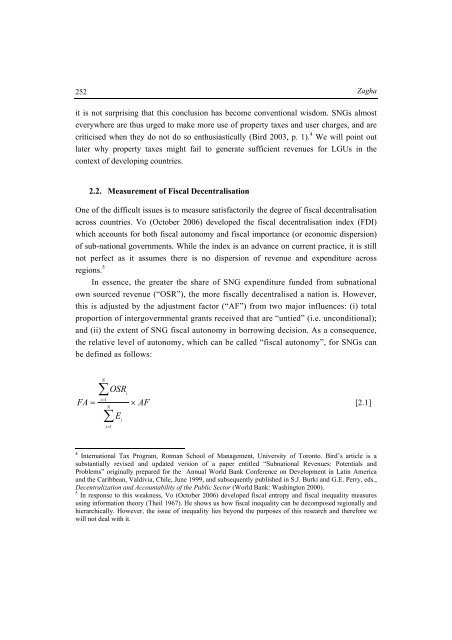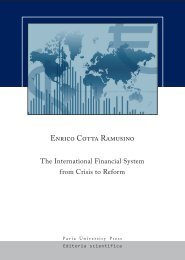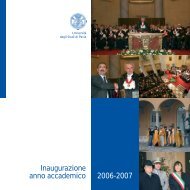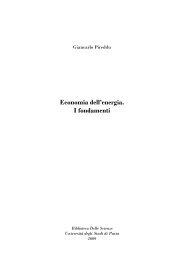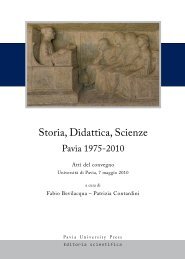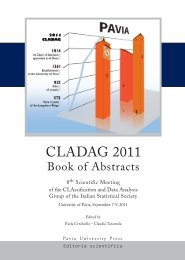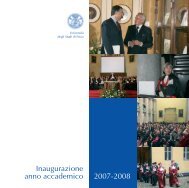The Palestinian Economy. Theoretical and Practical Challenges
The Palestinian Economy. Theoretical and Practical Challenges
The Palestinian Economy. Theoretical and Practical Challenges
Create successful ePaper yourself
Turn your PDF publications into a flip-book with our unique Google optimized e-Paper software.
252<br />
Zagha<br />
it is not surprising that this conclusion has become conventional wisdom. SNGs almost<br />
everywhere are thus urged to make more use of property taxes <strong>and</strong> user charges, <strong>and</strong> are<br />
criticised when they do not do so enthusiastically (Bird 2003, p. 1). 4 We will point out<br />
later why property taxes might fail to generate sufficient revenues for LGUs in the<br />
context of developing countries.<br />
2.2. Measurement of Fiscal Decentralisation<br />
One of the difficult issues is to measure satisfactorily the degree of fiscal decentralisation<br />
across countries. Vo (October 2006) developed the fiscal decentralisation index (FDI)<br />
which accounts for both fiscal autonomy <strong>and</strong> fiscal importance (or economic dispersion)<br />
of sub-national governments. While the index is an advance on current practice, it is still<br />
not perfect as it assumes there is no dispersion of revenue <strong>and</strong> expenditure across<br />
regions. 5<br />
In essence, the greater the share of SNG expenditure funded from subnational<br />
own sourced revenue (“OSR”), the more fiscally decentralised a nation is. However,<br />
this is adjusted by the adjustment factor (“AF”) from two major influences: (i) total<br />
proportion of intergovernmental grants received that are “untied” (i.e. unconditional);<br />
<strong>and</strong> (ii) the extent of SNG fiscal autonomy in borrowing decision. As a consequence,<br />
the relative level of autonomy, which can be called “fiscal autonomy”, for SNGs can<br />
be defined as follows:<br />
FA <br />
N<br />
<br />
i1<br />
N<br />
<br />
i1<br />
OSR<br />
E<br />
i<br />
i<br />
AF<br />
[2.1]<br />
4 International Tax Program, Rotman School of Management, University of Toronto. Bird’s article is a<br />
substantially revised <strong>and</strong> updated version of a paper entitled “Subnational Revenues: Potentials <strong>and</strong><br />
Problems” originally prepared for the Annual World Bank Conference on Development in Latin America<br />
<strong>and</strong> the Caribbean, Valdivia, Chile, June 1999, <strong>and</strong> subsequently published in S.J. Burki <strong>and</strong> G.E. Perry, eds.,<br />
Decentralization <strong>and</strong> Accountability of the Public Sector (World Bank: Washington 2000).<br />
5 In response to this weakness, Vo (October 2006) developed fiscal entropy <strong>and</strong> fiscal inequality measures<br />
using information theory (<strong>The</strong>il 1967). He shows us how fiscal inequality can be decomposed regionally <strong>and</strong><br />
hierarchically. However, the issue of inequality lies beyond the purposes of this research <strong>and</strong> therefore we<br />
will not deal with it.


